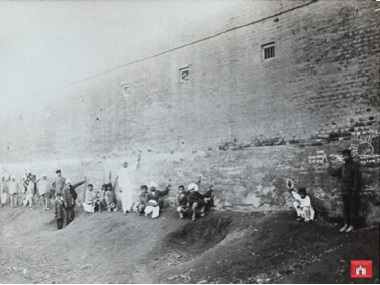Jallianwala Bagh massacre: ‘Regret’ doesn’t cut it, Britain ought to say ‘sorry’

Scene from the 1919 Jallianwala Bagh massacre
On the hundredth anniversary of the Jallianwala Bagh massacre on April 13, Punjab chief minister Amarinder Singh demanded an unequivocal apology from Britain, deeming prime minister Theresa May’s days-old expression of deep “regret” as insufficient. What would change had May used the word sorry? Would a formal apology convince India that its former coloniser is contrite about its controlling and extractive rule?
Any honest answer to that last question must address two contradictory truths. First, Britain has never indicated any particular angst over the global imperial project. In fact, the empire is still generally seen as an enormous achievement for a small island nation, a venture that should arouse pride for its ambition, scale, longevity and discipline. The empire is supposed to have been a proto-globalisation project, spreading civilisation, rule of law, the postage stamp, the railway and the English language.
Second, a debate is on in Britain over “decolonising” university curriculums as well as museum collections. Last year, Varsity, Cambridge University’s main student newspaper, which is the same age as independent India, carried a piece that demanded British history be taught in a “truthful” rather than “whitewashed way”. And in line with other European imperial powers such as France, Germany and Belgium, Britain is also more willing than before to question the propriety of holding on to colonial-era masks, thrones, statues and jewellery. Last year, the Victoria and Albert Museum in London said it was willing to return to Ethiopia — on long-term loan — a gold crown, chalice and other treasures taken by the British army in 1868. Thus far, that new mood to repatriate cultural wealth does not extend to the Kohinoor diamond in the Tower of London.
The two contradictions suggest Britain wants to move past the truths of history without disavowing it entirely. This is the context of Britain’s repeated refusal to explicitly say “sorry” for Jallianwala Bagh, as well as other shocking passages from colonial history. The 1943 Bengal Famine, for instance, left at least two million dead and Pakistan’s information and broadcasting minister Fawad Chaudhry recently said it was only right for Britain to apologise for this too. Little heed has been paid to this demand, even though the famine toll was a third of the numbers killed in the Holocaust.
Germany has repeatedly displayed official public remorse for the Nazi atrocities, but post-imperial Britain has never felt the need to apologise for the deaths, oppression, societal upheaval and social engineering in India and other colonies. Perhaps that’s because Germany was a defeated power in World War II and Britain has only ever felt it lost the battle of time with history’s pendulum swinging away from the age of empire.
This is one reason Britain now usually picks sober, reflective phrases but never “sorry” to respond to horrific instances of colonial violence. And as with May’s deep “regret” for Jallianwala Bagh, Tony Blair expressed “deep sorrow” for Britain’s role in the slave trade. Blair also spoke apologetically about London “standing by” while the Irish potato famine caused mass starvation in the mid-19th century. In 2013, the British government offered “sincere regret” and unusually, something more substantial too — £2,600 each — to roughly 5,000 people imprisoned and tortured during the Mau Mau rebellion in Kenya in the 1950s. The actions that accompanied the “regret” expressed to the Kenyans probably stands out as one of the strongest and most meaningful gestures of post-imperial atonement even though it didn’t include a “sorry”.
Is there still a case to be made for a simple and heartfelt “sorry” for Jallianwala Bagh rather than ever more convoluted attempts to sidestep an outright apology? May called it a “shameful scar on British Indian history”; her predecessor, David Cameron, said it was “deeply shameful” and Winston Churchill, secretary of war at the time of the massacre, described it as “monstrous”.
But, there is a growing Western distaste for the fashion of apology for historical events. UK foreign office minister Mark Field said Jallianwala Bagh’s hundredth anniversary was a good moment to focus on “our modern relationship with India …I feel a little reluctant to make apologies for things that have happened in the past”.
That’s also been Spain’s response to Mexico’s demand for an apology in the run-up to the 500th anniversary of the 1521 conquest of the Aztecs. Spain’s foreign minister Josep Borrell said it was “weird to receive now this request for an apology for events that occurred 500 years ago”.
Does it help to apologise for history? Can the living authentically say “sorry” for something done by other people, long since dead? It could be argued that the late Pope John Paul II’s many apologies, not least for the Crusades and the Inquisition, did no more than trigger a trend. After that, FW de Klerk apologised for apartheid, Jacques Chirac for the Vichy government’s help to the Nazis and Boris Yeltsin for the Bolshevik Revolution’s many mistakes. Did these apologies really change anything?
Perhaps not. But there is still a powerful symbolic purpose in saying “sorry” for something. So long as you are genuinely sorry, that is.
Originally published at https://www.firstpost.com

